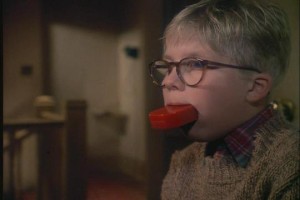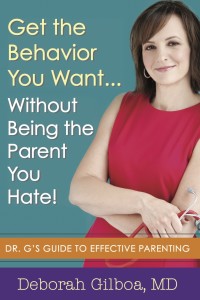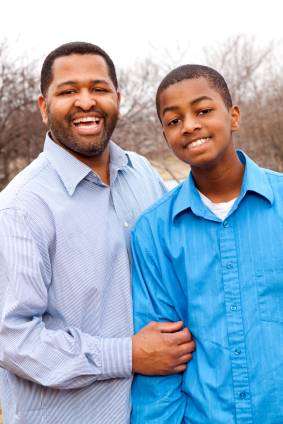|
|
July 13, 2015
 That was challenging, but you did it! Here’s Part 5 of my parenting Q&A series. Today’s question may be one of the most fundamental I’ve received in my 18 years at this online parent education gig. Here goes…
What is the most important thing I should teach my child?
Obviously an essential part of every parent’s job is teaching your children to survive, to keep themselves safe. But I’m going to take a different tack here. My answer to your question is: Teach them to handle their distressing emotions, i.e., the emotions that throw us off-center, muck with our moral compass and interfere with clearly thinking. I’m talking about anger, jealousy, resentment, etc. Oh and let’s not forget frustration and rejection! These emotions can very easily push us over the edge. And when we go over we are much less likely to treat others with respect and sensitivity. This is the why people become violent. Why we so often hurt each other.
When we teach kids to manage their distressing emotions they are in a much better place to deal with life’s challenges. And you don’t need me to tell you there are plenty of challenges to be dealt with… at least a dozen turn up in your path every day. Emotions are like solar flares. We need the tools to regulate and rein them in.
I’m not suggesting that we teach kids to try to rush ahead of our children and clear their path of all possible obstacles. Nor should we teach them to take everything as it comes with a cheery smile, pretending everything is OK when it isn’t. No way! A more realistic and valuable approach is helping kids understand that they will be pushed to the edge at times. They can count on feeling frustrated, hurt, and angry at times. Our feelings are important, but our behavior is even more important. Our behavior in the face of really strong emotions is something we need to master. Mastery comes from practice.
So let’s give our kids lots of practice in calming down. Lots of practice in finding the words when they feel out of control. Words are very important. We need to help our kids understand that even when we feel we’re about to lose it, it is never OK, to be cruel or disrespectful to anyone. The best way to do this is to model it. Our kids give us plenty of opportunities to show what it’s like to get one’s buttons pushed. They do that to us every day! We need to show them that we know how to control ourselves so that they can learn to do it too.
I hope this helps.

February 18, 2015
 “Boy, you need to have your mouth washed out with soap!” If we’re doing our job as parents of young children, we ought to be talking to them a lot. We should be singing to them. Teaching them nursery rhymes. Reading to them. Asking them questions. Showing interest in what they have to say. We play an essential role in helping our kids develop language. With language comes a child’s ability to communicate his or her needs, ideas, dreams, and emotions. Language connects hearts and minds.
We should encourage our kids to talk and praise the progress they make. But what happens when we’re not thrilled with their choice of words? Once, when I was four, I told my mother to “Shut up.” Her response was to stick a bar of soap in my mouth. (I kid you not.) I grew up in the era of mindless parenting. But that was then and this is now. What do you do when a toddler drops an f-bomb or an s-bomb? If it occurs in public, the Parent Police will be on you in a hot New York minute, assuming L’il Sweetie Pie learned that word from you. And that may be true. (Hey, I’m not judging.) But here’s the thing, even if your language, like mine, isn’t always G-Rated, you still can and should teach your child what is and is not appropriate language for them to use.
Earlier today I received a parenting question from a grandfather who had gotten an earful from his 2 year old grandson. Grandpa wasn’t sure how to respond so he asked my advice. Here’s what I told him over at my vlog on Vidoyen.
When your child (of any age) uses language that you deem “inappropriate” what do you do? Tell us what’s worked in your family. Please, no stories about soap.

December 10, 2014
 I’m Annie Fox and I approve this message! I read lots of parenting books, but only recommend the top notch. That means they deliver pragmatic advice in small, well-organized, chunks of digestible wisdom. No big chunks, please. Who’s got the time? It helps a lot if the book’s tone is so engaging I can imagine the author talking to me over a cup of coffee. Also, it’s a good thing if the descriptions of parent-child interactions are so spot-on I’m chuckling and misting over throughout. (Yes, a good parenting book is as likely to make me cry as it is to have me laughing and calling out to David, “Sweetie, you’ve gotta hear this!”) Added requirement for any great parenting book: I have to learn something new. Not so easy because, as I said, I read loads of them.
For all the above reasons, I’m happy to recommend Dr. Deborah Gilboa’s latest book, Get the Behavior You Want Without Being the Parent You Hate. Before I tell you what I learned, let me tell you who needs this book – Any parent who has ever wondered if there’s a better way to get your child to:
1. Brush his/her teeth
2. Get along better with siblings
3. Quit whining about being “booooorrrrreeeed” and learn to manage their free time creatively
4. Do something you require without your constant nagging
… plus fifty other things that kids need to learn in order to be become respectful, responsible, and resilient young adults.
Dr. Gilboa, aka @AskDocG, is a practicing family physician, and a parenting expert. She’s also the mom of four boys who, have apparently brought her to edge of sanity more than once. In the book’s introduction she admits that she has “nagged, yelled at, threatened, and guilted my children to try to get them to behave well. Not all of the time, and usually not on purpose, but, just like many parents, I’ve done all this and more. Not only do I feel really horrible about it afterwards, but (and here is the kicker) it doesn’t work.” So you see, Doc G is also honest, humble and funny. What’s not to like?
Listen to my podcast interview with Doc G.
As for what I learned from Get the Behavior You Want… it came from section 5: What you do is more important than what you feel. Think about it for a minute. Most of the time we mindful parents do our best to get our children in touch with their feelings. “How do you feel now, sweetheart?” “And how did what he said this morning make you feel?” “How do you think you’ll feel about that tomorrow?” The message to kids: how they feel is pretty much the most important thing. Doc G points out that feelings are important, but they should not be accepted as an excuse for poor behavior. Something parents do all the time!
We do it when we say, “Oh, she’s just in a bad mood.” “He’s had a hard day.” “She’s overtired.” Doc G teaches that we need to help our kids become accountable for their behavior. And we can accomplish that by empathizing with our kids’ feelings (“I understand why that made you angry….”) while still sticking with our standards of behavior (“….but biting is totally unacceptable in this family. And here’s the consequence for the doing it…”)
It’s not always easy for an unhappy, overtired child to accept responsibility for his or her actions, but parenting is all about clear standards and consistent responses, isn’t it?
Thanks, Doc G!
Try making this shift in the way you deal with unacceptable behavior from your kids and let me know how it goes.

February 16, 2010
By Bruce Sallan
Bruce Sallan gave up his showbiz career a decade ago to become a full-time dad to his two boys, now 13 and 16. Bruce’s internationally syndicated column, A Dad’s Point-of-View, is his take on the challenges of parenthood, both as a single dad and now, newly remarried, in a blended family. Please visit Bruce at www.brucesallan.com, join his “A Dad’s Point-of-View” Facebook page and follow the man on Twitter, which is where I met him. Glad I did!
 A parent who means what he says creates a partnership kids can count on. Nobody promised that being a parent would be easy nor were we assured that we’d get kids that were easy to handle. If you’re like most of us, you face regular challenges to your authority, your rules, and the way you expect your kids to behave. As with much in life, there’s room for compromise, but with parenting I suggest that sticking with your rules defines your values and teaches your children valuable lessons. The first rule must be that you tell the truth.
It’s a simple idea to tell the truth, but not always so simple to execute in real-life family situations. For instance, what do your kids really hear when you say something like, “If you do this fill-in-the-blank thing, you’re gonna be grounded” with stern parental authority. Most kids will interpret that to mean, “Well, I sure hope you won’t do that, but I’ll forgive you when you do because I love you so much and want to be your best friend.” The result? You haven’t told the truth or stood by your word. The kids then know they can manipulate you.
The impact of vacillating on our children is drastic and very harmful. I cannot emphasize enough how much we are role models for our children and how much they learn from our behavior. Our kids watch every move we make and if we waffle on a rule or a threat, then they learn to work that to their benefit. I’ll offer a personal example that has been hard on our family.
My older son turned 16 in November and he still hasn’t been allowed to get his driver’s permit, let alone his license. At 15½ he was legally allowed to get his permit, but the reason he hasn’t is that when he was about 14, I set a rule that he had to have a “B” average for the privilege of driving. No excuses, no blaming his teachers, no “I’m so close” – he had to bring home a “B” average.
As I explained to him, part of my rationale was that insurance rates are significantly lower for kids with a “B” average. And, since he can’t get his license until six months after getting his permit, regardless of his age upon getting his permit here in California, he has delayed the process substantially with his “B-minus“ grade level!
The irony is that by not wavering on this rule, it has made its implementation almost easy and without any challenges from him. He has acknowledged his own screw-ups with schoolwork and putting off homework assignments, and lazy studying for exams. It has put him in the embarrassing position, among his friends, of not having a permit while so many others have gotten theirs. And, since he now has a girlfriend, it’s doubly embarrassing, as she’s gotten her permit, and a “B” average, even though her birthday is six months after his.
I feel bad for him. You bet. Will I ease up on my rule? Maybe. But, the maybe includes a compromise that is in essence a version of my original rule. We discussed allowing him to get his permit now, with the “B-minus” average, BUT he won’t be allowed to get his license unless he then makes up the difference with a high enough “B” average next semester that the aggregate is a total of a “B” average.
The advantage to him and us if he accepted the revised “rule” is that the six-month countdown can begin and if he makes the grades, he can potentially get his license sooner. It would ease my chauffeur responsibilities if he could drive and I’d love that. The irony is that he’d then have to do even better next semester and, consequently, he was not sure whether to take this offer.
After presenting him with that option, he chose to stick with the present rule, feeling that he had a better chance at getting the required “B” average, starting fresh this next semester rather than having to get a higher average and get his permit now. That is an interesting choice, but it was his and he’s also learning delayed gratification and his own responsibility in what has happened and he’s not blaming us. It’s a win-win for us parents and maybe a valuable lesson for this particular teen.
The result is that Will knows that I mean business, and that I’m open to compromise, but only if there’s equal balance within any new agreement. I’ve kept my credibility and can even be sympathetic to his sadness at not having his permit, let alone his license several months after his 16th birthday. The rule is not “me” and he doesn’t fully tie me to the rule, which is the beauty of it.
So, stick with your rules even if you see the pain and discomfort it causes your children. They learn more from this sort of “pain” than when you give in and spoil them. They learn to trust and respect you and maybe, just maybe, they might take those rules seriously, too.

| |















